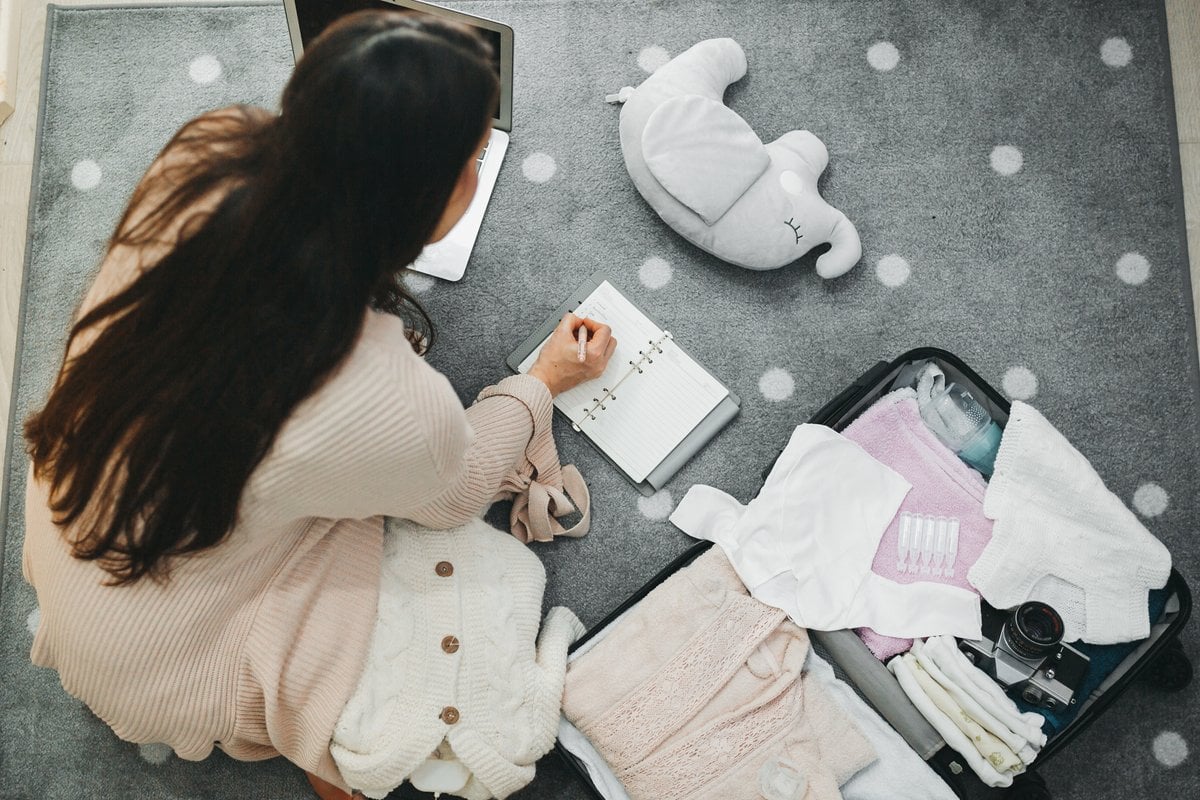
When it's time to pack your hospital bag, the imminent arrival of your baby starts to feel very, very real.
Your care provider will encourage you to start packing your hospital bag from about 34 weeks and will routinely suggest essentials for you and your baby. It's always a good idea to get your birth support person to pack a bag, too.
Suggested items include a change of clothes including warm clothes (hospitals are notoriously cold), snacks, a phone charger, swimmers (in case you plan to use the shower or the bath in labour), toiletries, an insulated coffee cup and a water bottle.
Watch: We share our weirdest pregnancy cravings. Post continues after video.
Most hospitals will swaddle your baby in the signature striped hospital blankets after birth (you'll want to unwrap them for skin-to-skin) but you will be responsible for providing everything else, including your baby's clothes and nappies and your sanitary products.
This list is a simple guide created with the help of many mums who have been birthed in hospitals and birth centres across Australia:




























































































